The Genesis G80 wraps you in next-generation luxury tech
The new Genesis G80 is stuffed to the gills with pioneering technology and premium design

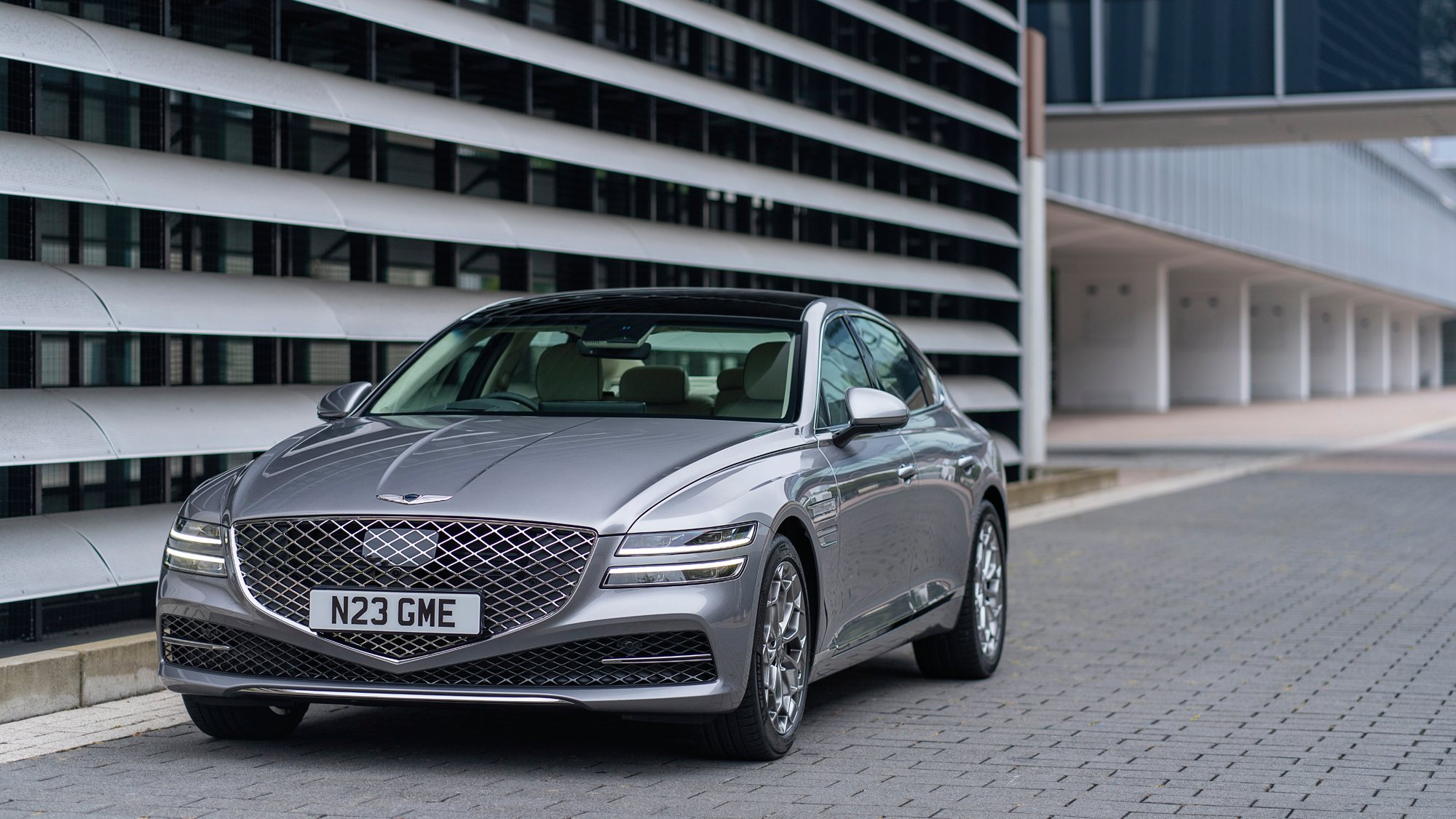
What makes a luxury car? For most people, luxury equates to a richness of materials, a surfeit of a valued commodity – be it power, space, or pace – and an ease of connection and use that rewards the monetary outlay. In short, you need to feel it. In some respects, the new Genesis G80 epitomises this vision of luxury, while also being rather old-fashioned. As a large, petrol-powered (no hybrid, no EV) three-box, four-door saloon car, it represents the final flourish of a typology that has driven the world’s highways for over 70 years.
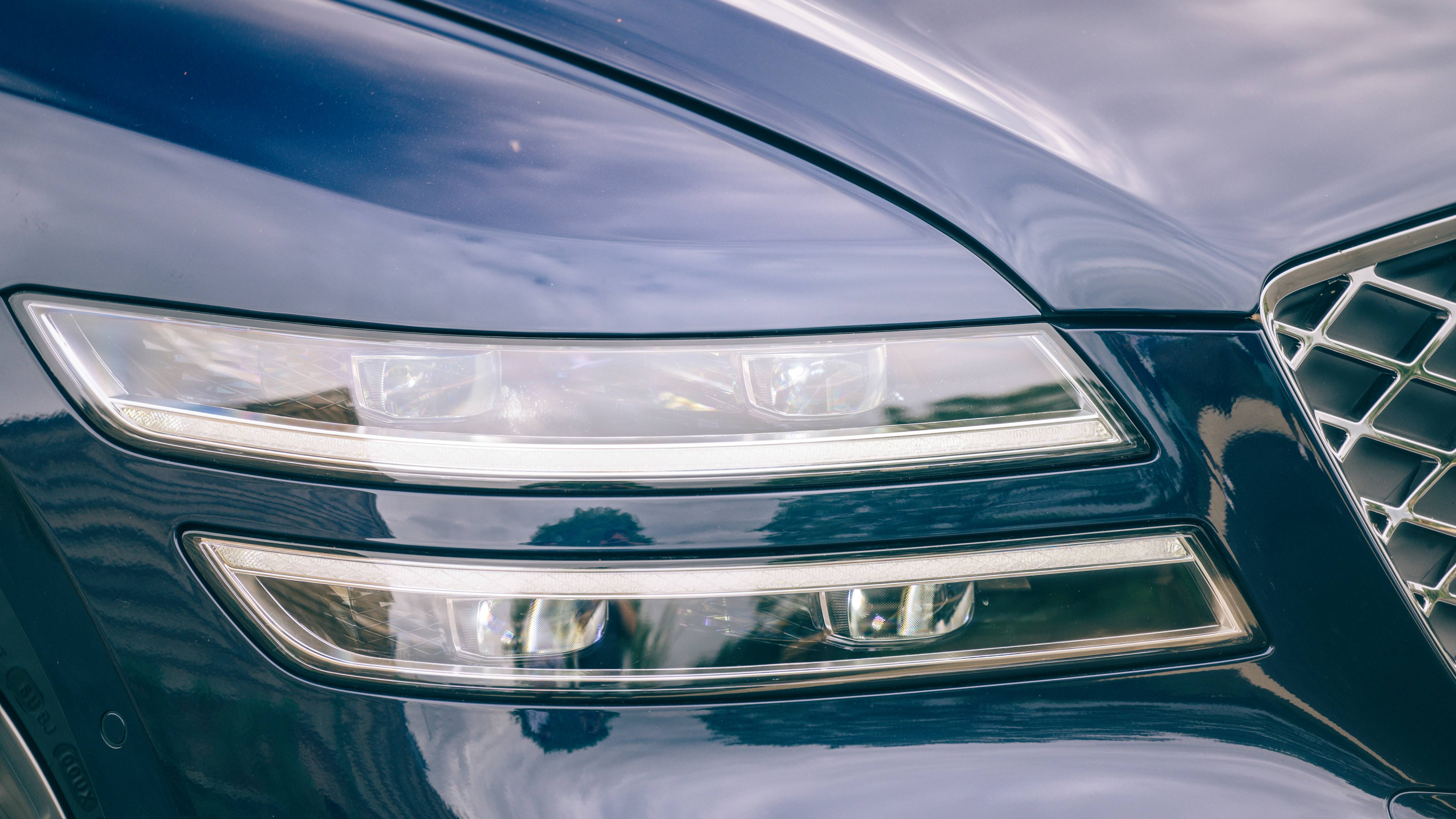
The Genesis G80 features the company's signature headlights
Genesis, however, is a relatively new brand, certainly in the UK. Born out the mighty South Korean Hyundai, Genesis builds luxury cars at premium budgets, hoping to do for the sector what Lexus did back when it was launched in 1989. There are two things that make the 5-metre long G80 stand out from familiar rivals offered by Mercedes, BMW, Lexus, Volvo, Jaguar, and Audi. The first is the design. It’s not ground-breaking, as we’ve already noted, but it is pretty sleek and undeniably well proportioned.
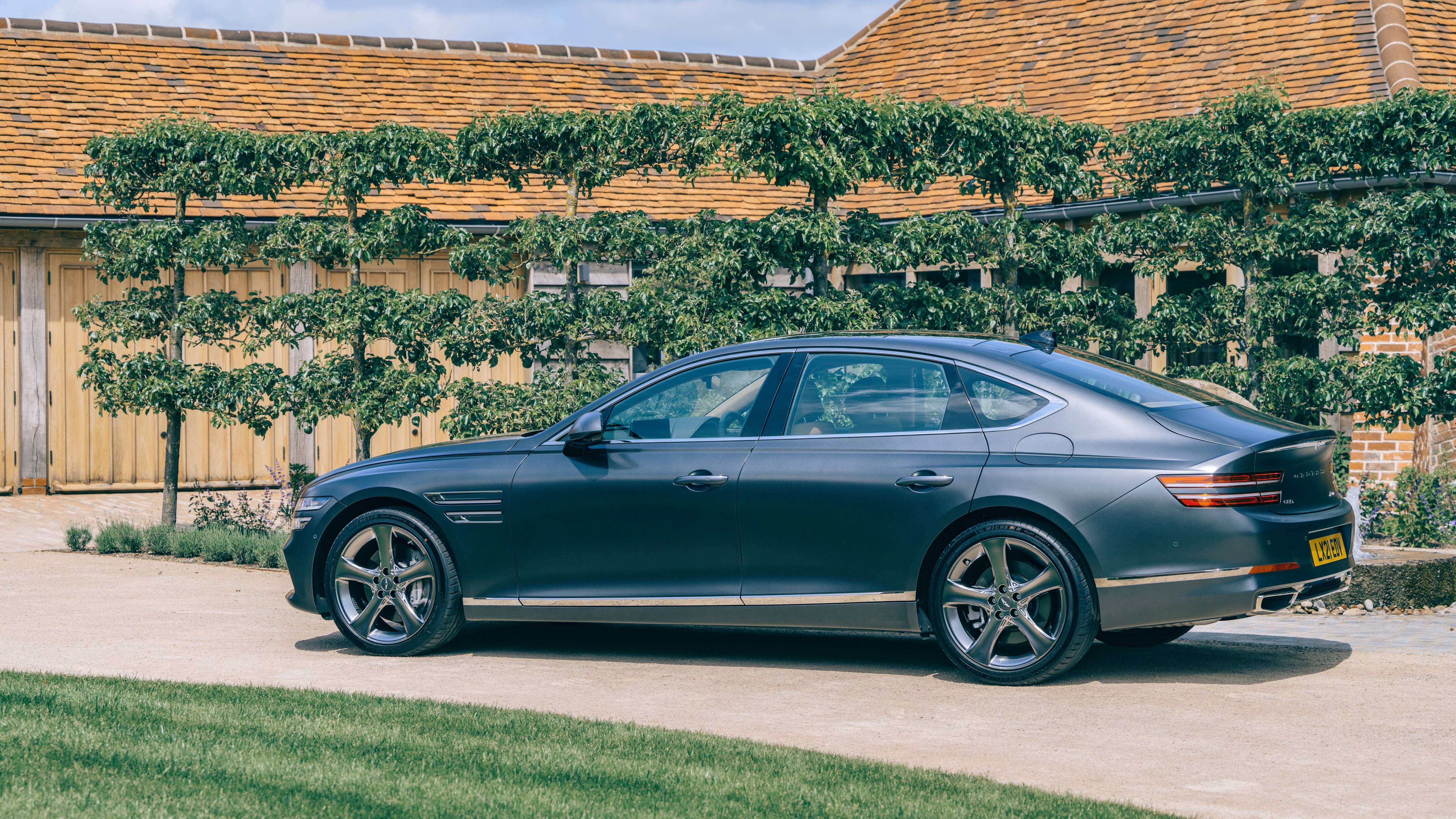
The fastback body shape is classically elegant
The company’s design director is the Belgian Luc Donckerwolke, an industry veteran with extensive experience at the Volkswagen Group’s top tier brands, Audi, Lamborghini, and Bentley. For Genesis, Donckerwolke and his team are currently striving to create something they describe as ‘athletic elegance.’ It sort of works, especially at the rear where the long sloping tail kicks up to form a spoiler. Lights and brightwork are restrained, with the brand’s signature stacked ribbon headlights flanking a hefty diamond-shaped grille. So far, so old school, as is the soft Nappa leather upholstery and open pore wood on the dash.
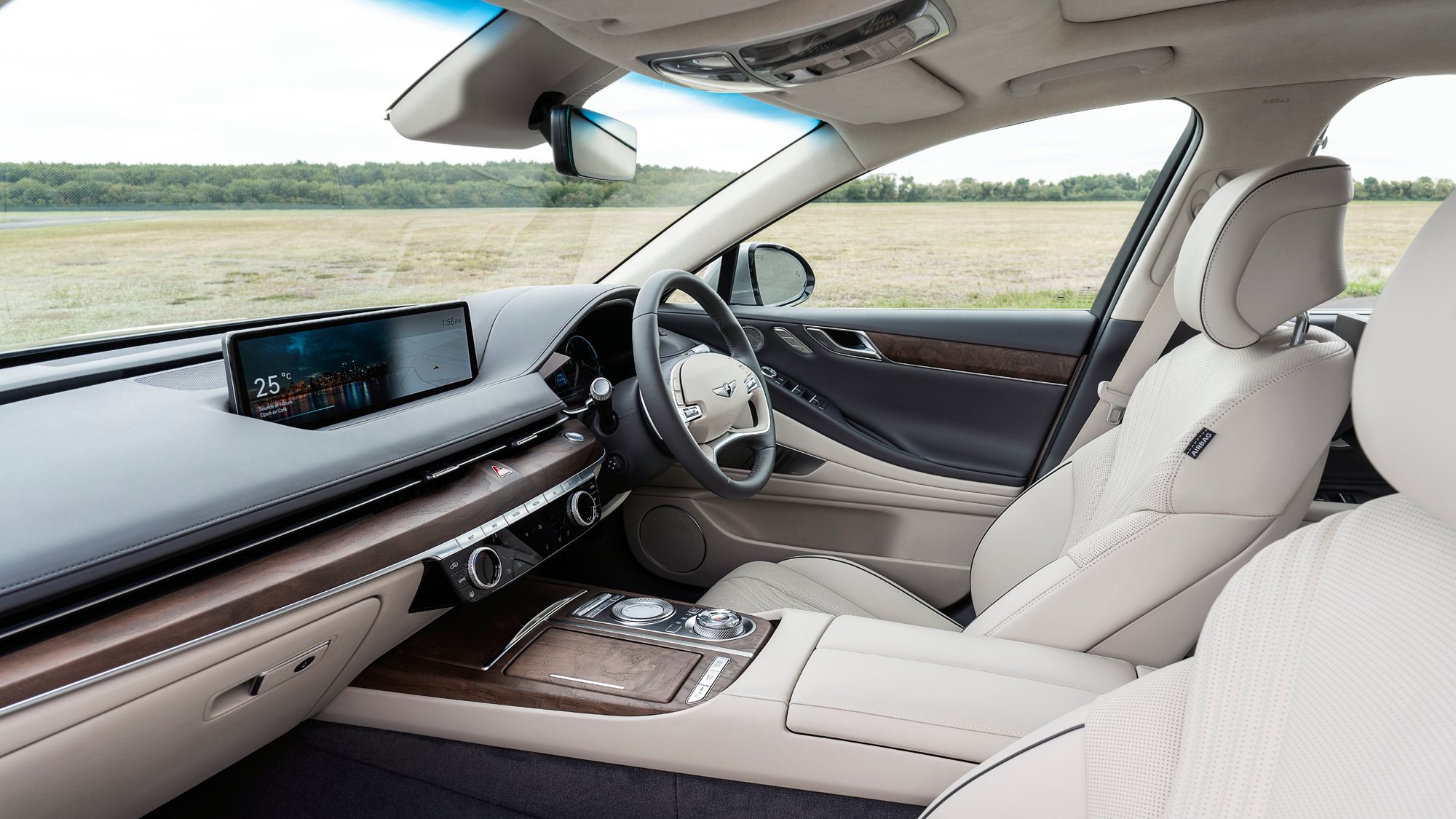
Premium materials and simple forms characterise the G80's interior
Inside, technology is integrated into every conceivable aspect of the car, sometimes in a subtle way, sometimes rather more in your face. The G80’s dashboard is quite conventional in its architecture, with a (digital) 12.3” binnacle behind the steering wheel and a linear 14.5” screen nestling in the leather-topped dashboard. Below this sits a bank of buttons and dials, with the main infotainment interface set into the wood-topped centre console. This is a clever bit of interface design, incorporating a dial, buttons, and a trackpad with handwriting recognition.
The G80 has a couple of big party tricks, including the ability to pop a digital view from your rear-view mirror into the instrument cluster when you flick on the indicators. There’s also an ‘augmented reality’ view for the central display, which overlays the navigation path onto an image of the road ahead. All G80s have a ‘Ride Preview’ system that maps out the upcoming road surface and primes the adaptive dampers to respond to them with a minimum of bump and grind.
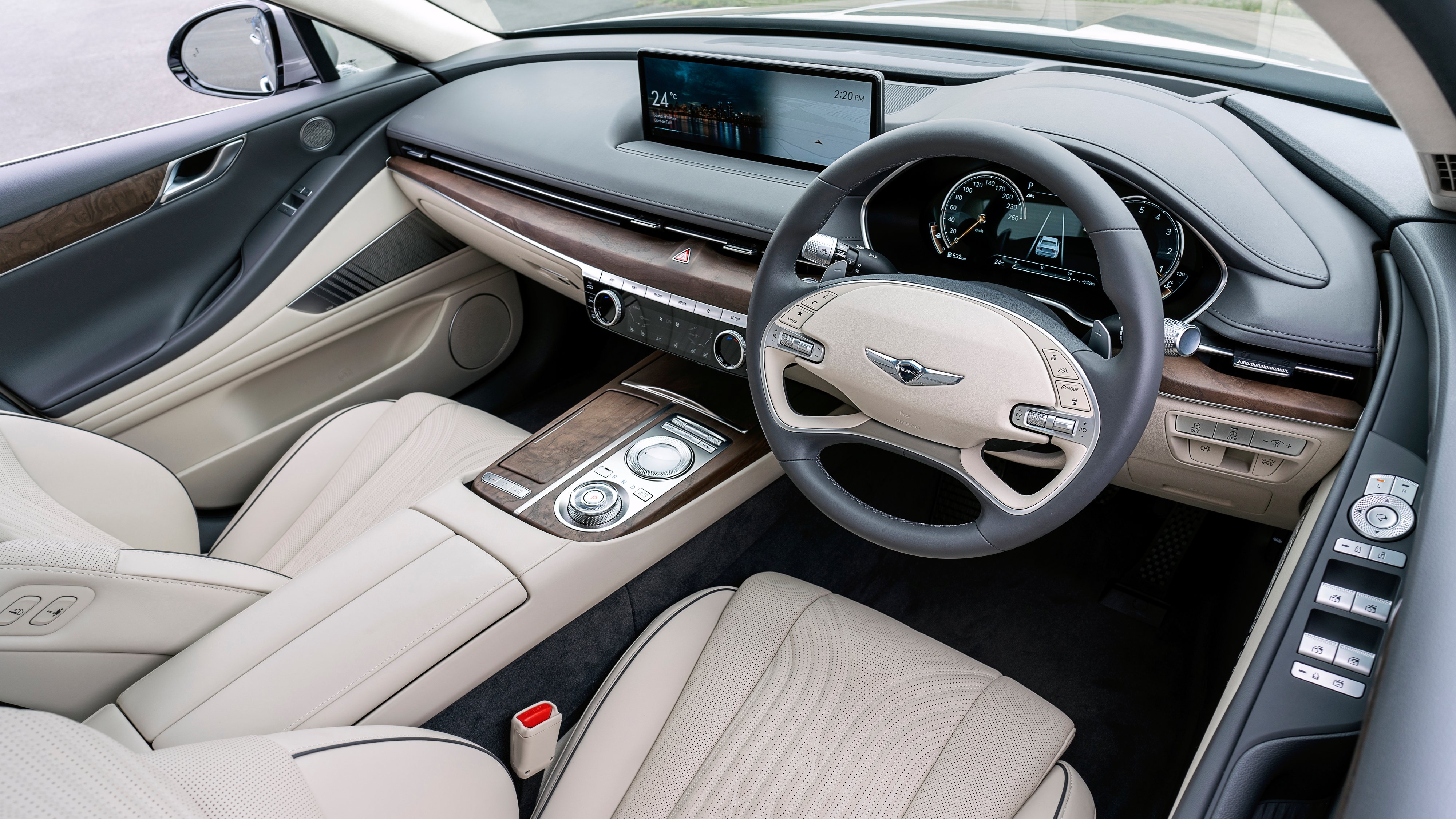
The G80 successfully blends physical buttons with screens
Like most modern cars, the G80 will stay within lanes, chirp to alert you of impending speed cameras, monitor your blind spot and do everything else that a car needs to do to get its five-star Euro NCAP rating. There are a total of ten airbags to back up these driving assist systems, which include the first AI-powered Smart Cruise Control, designed to learn your driving style over time.
Our favourite feature is perhaps the least safety conscious of all; when parked up, you can turn on the ignition and inch the G80 forwards and backwards using the key fob. Helpful if you’re stuck in a tight parking space, or if you want to pretend your car can follow you like a dog. Sensors stop you from bashing a bollard or your neighbour’s bumper (in theory).
Get all the latest news, reviews, deals and buying guides on gorgeous tech, home and active products from the T3 experts
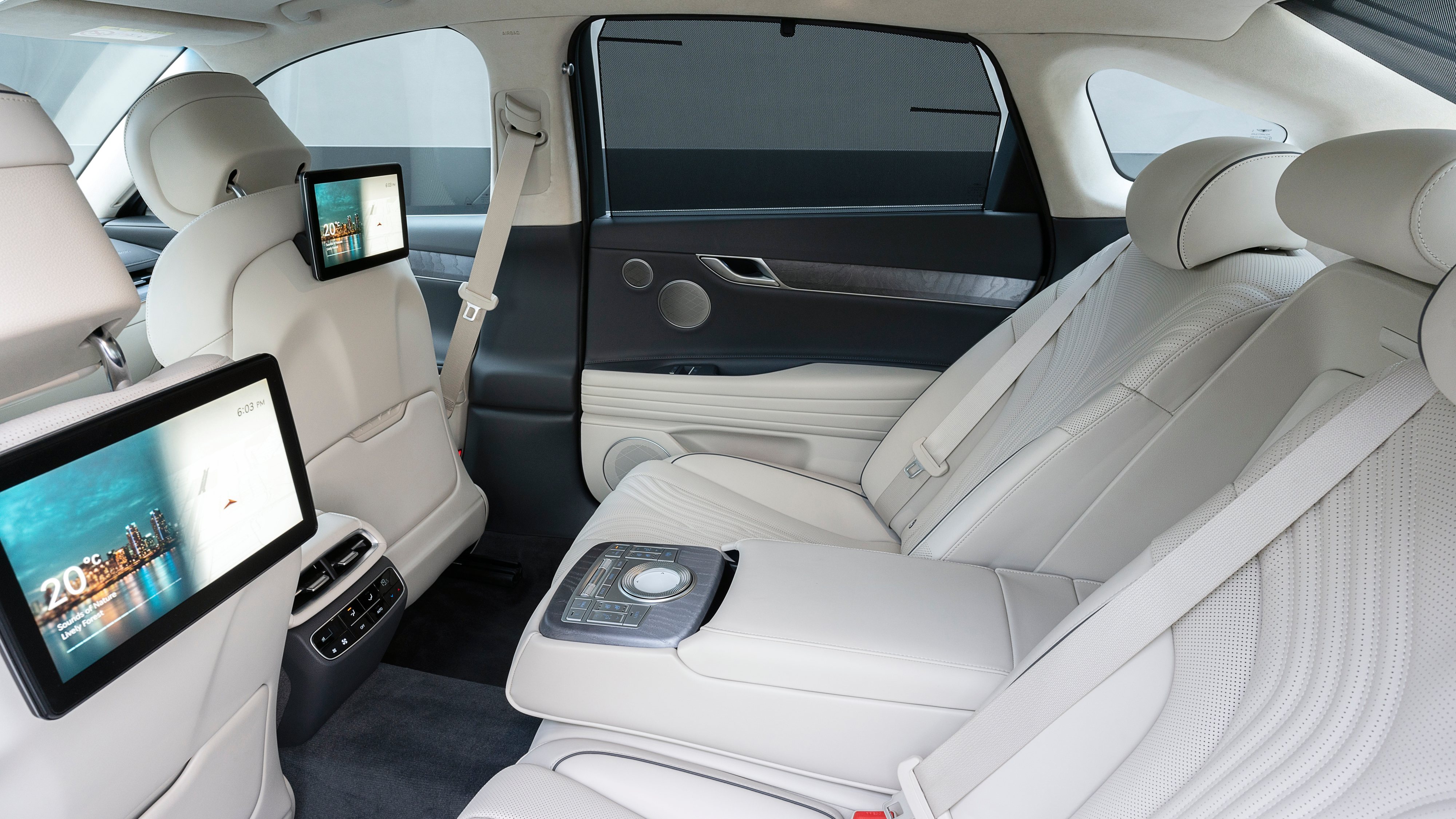
The back seat can be specced up to executive-level paradise
Admittedly, it makes more sense to do these low-speed remote controlled shenanigans using electric power, which brings us to the G80’s most glaring anachronism; for the time being, this luxury car is only available in petrol or diesel flavours. An electrified G80 was revealed last Spring but hasn’t yet made its way to the UK market.
Promising a swift 4.9 second sprint to 62mph and a range of around 300 miles, the G80 EV should prove broadly competitive with challengers like the forthcoming Mercedes EQE and the 2023 BMW i5.
For such a new company, the Genesis range already feels like it’s in transition; current models include the GV80 and GV70 SUVs, the smaller G70 saloon and svelte G70 Shooting Brake. Next up will be the intriguing GV60, which pairs the electrical platform beneath Hyundai’s acclaimed Ioniq 5 and the Kia EV6 with a sleek Genesis design.
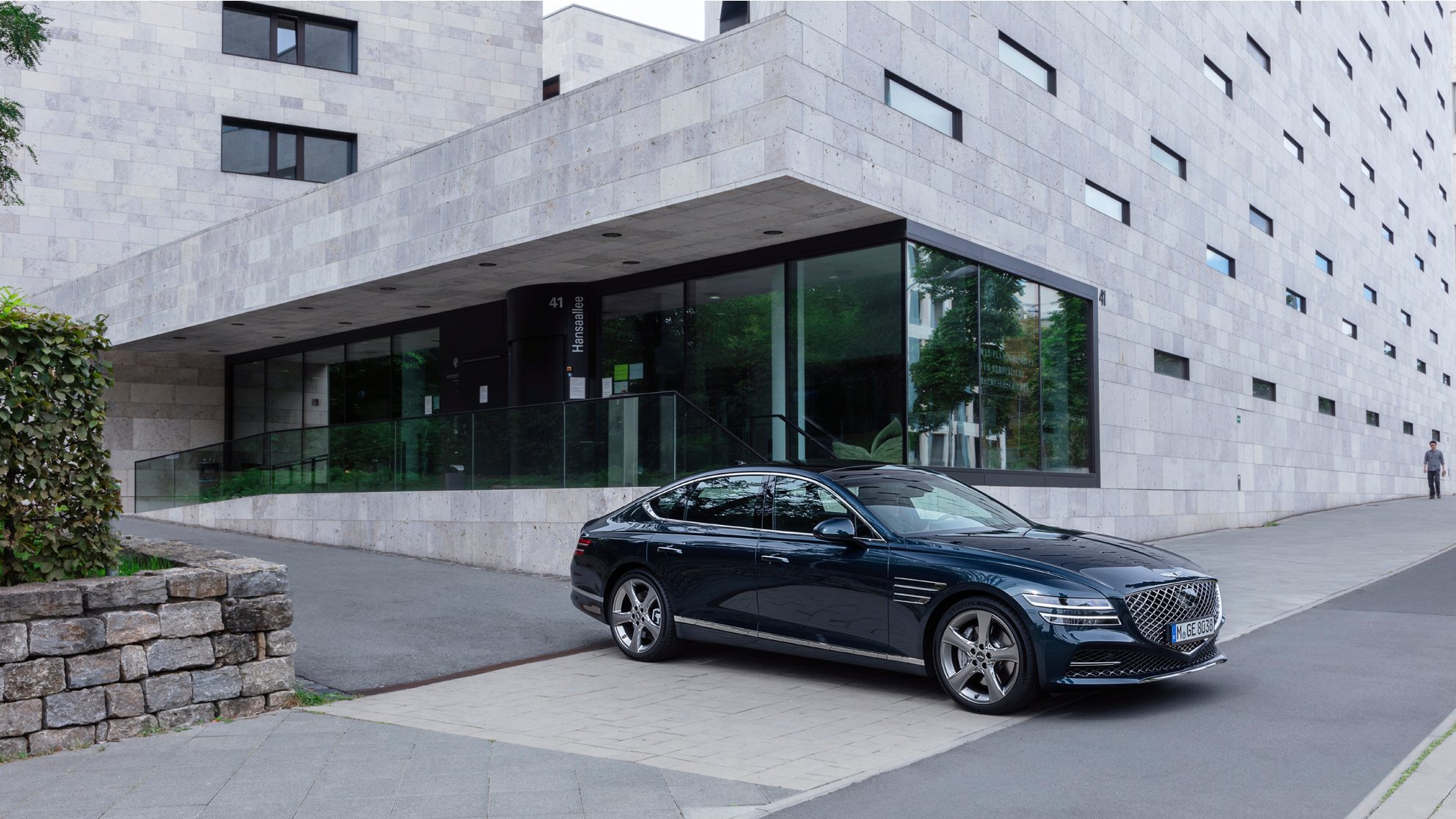
What else is new about the G80? Genesis has developed its own ‘Connect’ system of On-Board services, which work in conjunction with a dedicated app to give you location info, range data, navigation options and last mile travel options. You can also back up your in-vehicle preferences (seat position, etc) to the app and transfer them to other Genesis models.
For those who miss the roaring snarl of a petrol engine, you can ramp up the interior sound of the cylinders using Genesis’s Active Sound Design. Conversely, the G80 EV will come with a system of microphones that soak up road noise in order to phase-cancel it for an extremely hushed ride. If that’s not enough, a selection of on-board ambient sounds can be piped through the cabin.
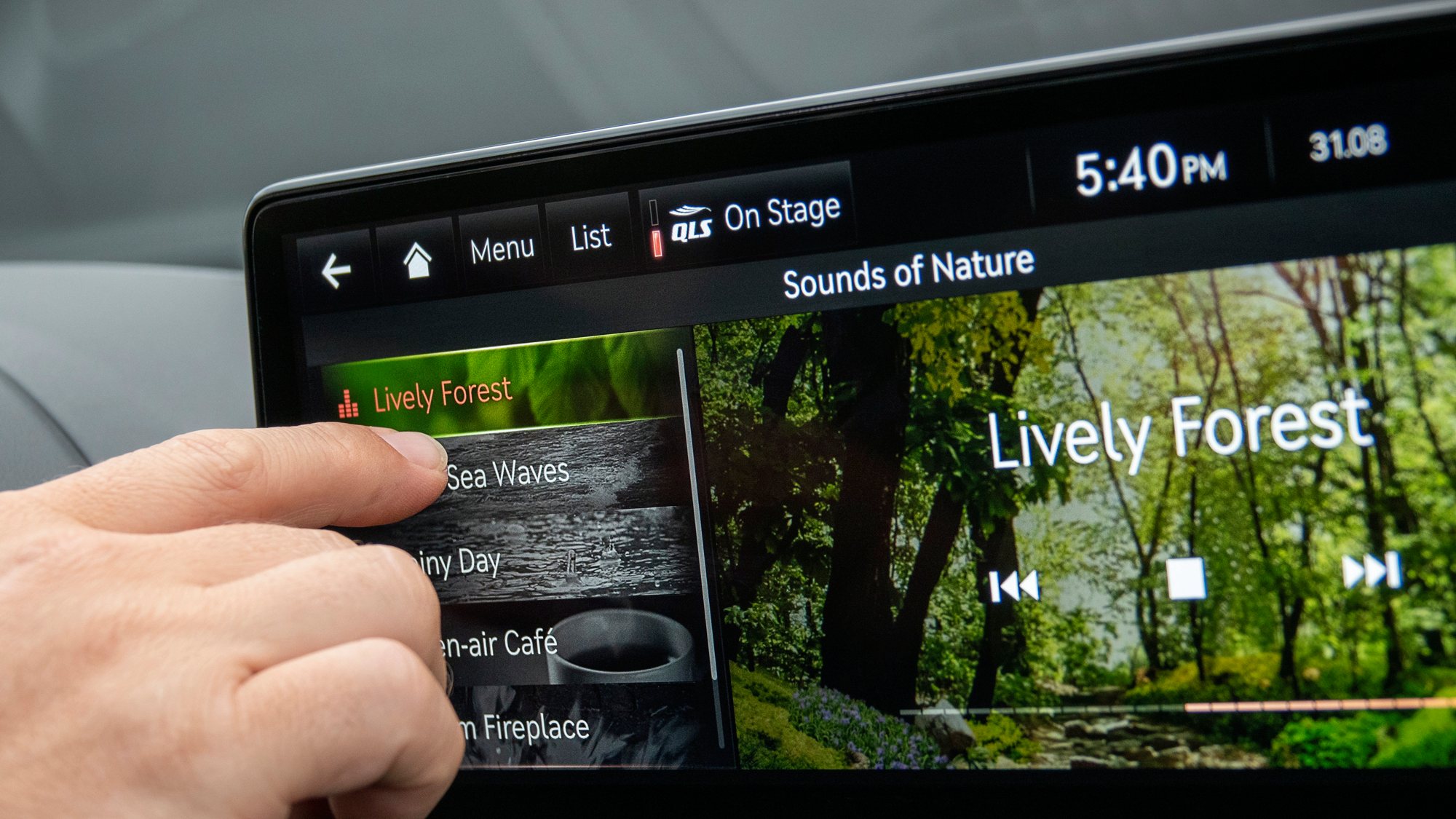
Commute to the sounds of a lively forest or busy cafe
The 2.5 litre petrol G80 we drove was plenty refined, and although this powertrain isn’t quite state-of-the-art it is sufficiently smooth and powerful to banish tiresome thoughts of cylinders and horsepower. It simply works. The Genesis G80’s combination of rarity value, refinement, and technical sophistication might make it a leftfield choice, but it’s hardly an irrational one.
The Genesis G80 starts from £37,460.
Read more at Genesis.com
This article is part of The T3 Edit, a collaboration between T3 and Wallpaper* which explores the very best blends of design, craft, and technology. Wallpaper* magazine is the world’s leading authority on contemporary design and The T3 Edit is your essential guide to what’s new and what’s next.

Jonathan Bell is Wallpaper* magazine’s Transport and Technology Editor, a role that encompasses everything from product design to automobiles, architecture, superyachts, and gadgets. He has also written a number of books, including Concept Car Design, 21st Century House, and The New Modern House. His interests include art, music, and all forms of ephemera. He lives in South London with his family.
